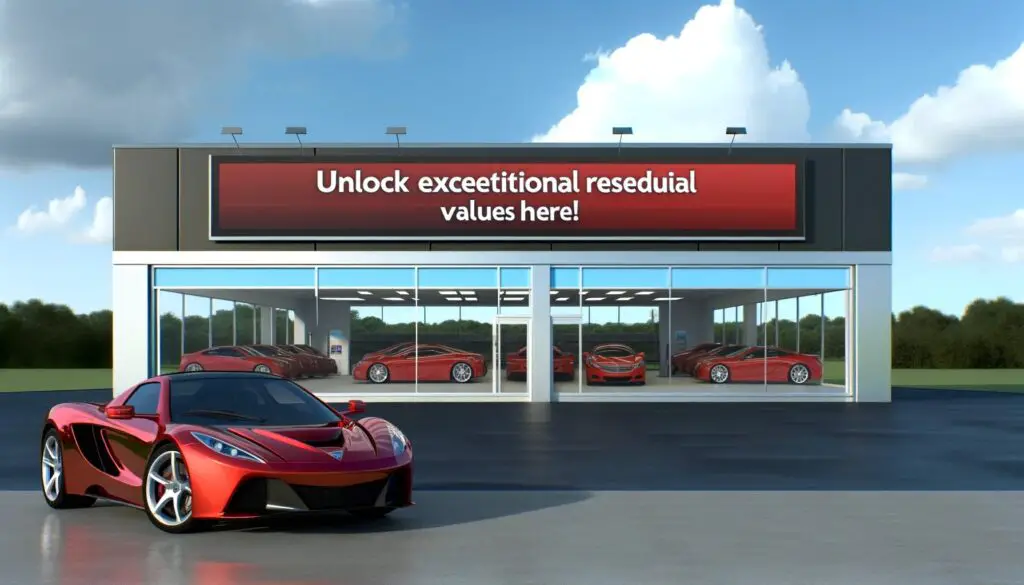Discover the unbeatable advantages awaiting savvy car shoppers at the year’s end. Learn how strategic timing aligns with dealerships’ sales targets and surplus inventory to unlock unparalleled savings and incentives.
Understanding Year-End Car Leasing Offers
Year-end car leasing offers encapsulate exclusive deals tailored to capitalize on the seasonal dynamics of the automotive market. As the year draws to a close, dealerships orchestrate compelling lease agreements designed to entice prospective buyers. These offers typically feature reduced monthly payments, lower down payments, and enhanced lease terms, making them an enticing prospect for budget-conscious consumers seeking value-driven options.
Dealership Sales Targets
Dealerships operate within a meticulously planned framework of sales targets, especially crucial as the calendar year concludes. These targets serve as benchmarks for sales performance, compelling dealerships to pursue aggressive strategies to meet or exceed quotas. In the pursuit of meeting these targets, dealerships are incentivized to offer competitive pricing and flexible terms to stimulate customer engagement and drive sales volume.
Advantages for Consumers
Consumers stand to reap significant benefits from dealerships’ year-end sales targets. The imperative to achieve quotas motivates dealerships to extend generous discounts, incentives, and lease specials, creating a buyer-friendly environment conducive to securing favorable deals. By leveraging dealerships’ sales objectives, consumers can capitalize on unparalleled savings and incentives, maximizing the value proposition of leasing a car at year’s end.
Leftover Models Clearance
A hallmark of year-end car leasing offers is the strategic clearance of surplus inventory comprising previous year models. As dealerships prepare to usher in new iterations, they prioritize liquidating existing stock to create space and capitalize on emerging market trends. This surplus inventory clearance presents a prime opportunity for consumers to access discounted lease incentives and rebates, effectively transforming outgoing models into compelling value propositions.
Lease Incentives and Rebates
Year-end car leasing offers encompass a diverse array of incentives and rebates tailored to incentivize consumer participation. Dealerships may offer cash rebates, reduced interest rates, or complimentary upgrades to sweeten lease agreements and entice prospective lessees. By capitalizing on these incentives, consumers can unlock additional savings and enhance the overall affordability of leasing a car at the year’s end.
Factors to Consider Before Leasing
Before committing to a year-end car lease, diligent research is imperative to ensure an informed decision. Prospective lessees should evaluate lease terms, residual values, and mileage allowances to ascertain the suitability of the offer. Additionally, considering individual preferences, driving habits, and financial considerations can help align leasing decisions with long-term objectives and lifestyle requirements.
Comparing Prices and Terms
Effective comparison shopping is paramount when evaluating year-end car leasing offers. Prospective lessees should solicit quotes from multiple dealerships, scrutinizing pricing, terms, and incentives to identify the most advantageous proposition. By conducting thorough comparisons, consumers can leverage competitive offers to negotiate favorable terms and secure optimal value.
Financial Considerations
Navigating the financial landscape of car leasing necessitates a comprehensive understanding of associated costs and obligations. Prospective lessees should factor in monthly lease payments, down payments, taxes, and insurance premiums when evaluating affordability. Additionally, considering long-term ownership costs versus leasing expenses can inform prudent decision-making and ensure financial alignment with individual circumstances.
Leasing vs. Buying
The perennial debate between leasing and buying a car hinges on distinct considerations and objectives. Leasing offers flexibility, lower monthly payments, and the allure of driving a new vehicle every few years. In contrast, purchasing a car entails long-term ownership, equity accumulation, and the absence of mileage restrictions. Understanding the nuances of each option empowers consumers to make informed decisions aligned with their preferences and lifestyle.
Pros and Cons of Leasing
Leasing a car affords numerous advantages, including lower upfront costs, warranty coverage, and simplified maintenance. However, lease agreements entail mileage restrictions, excess wear and tear charges, and the absence of ownership equity. Prospective lessees should weigh these factors against their individual priorities to ascertain the suitability of leasing as a viable transportation solution.
Pros and Cons of Buying
Purchasing a car outright offers the allure of ownership, equity accumulation, and freedom from mileage restrictions. However, ownership entails higher upfront costs, depreciation, and maintenance responsibilities. By evaluating the long-term implications of ownership, consumers can determine whether buying aligns with their financial objectives and lifestyle preferences.
Understanding Lease Terms
Navigating the intricacies of lease agreements necessitates familiarity with common terms and terminology. Key considerations include lease duration, mileage limits, disposition fees, and excess wear and tear charges. By comprehensively understanding lease terms, lessees can avoid misunderstandings and negotiate favorable agreements tailored to their needs.
Lease Negotiation Tips
Effective lease negotiation requires meticulous preparation and strategic engagement. Prospective lessees should research market trends, leverage competing offers, and maintain a firm grasp of desired terms and concessions. By approaching negotiations with confidence and clarity, consumers can secure advantageous lease agreements aligned with their budget and preferences.
Determining Your Needs
Assessing individual transportation needs is fundamental to selecting the optimal leasing arrangement. Considerations such as daily commute, lifestyle preferences, and anticipated usage patterns inform decisions regarding vehicle type, features, and lease duration. By aligning leasing decisions with personalized needs and priorities, consumers can optimize the value proposition and satisfaction derived from their leasing experience.
Benefits of Leasing for Different Lifestyles
Tailoring leasing benefits to specific lifestyles enhances the appeal and relevance of year-end car leasing offers. Urban dwellers may value compact, fuel-efficient vehicles with convenient parking options, while frequent travelers may prioritize reliability, comfort, and road-trip readiness. By customizing leasing solutions to accommodate diverse lifestyles, dealerships can cater to the unique preferences and requirements of discerning consumers.
Addressing Misconceptions
Dispelling common misconceptions about car leasing fosters clarity and informed decision-making among consumers. Misconceptions such as excessive mileage penalties, lack of ownership benefits, and limited vehicle selection warrant clarification to mitigate apprehensions and instill confidence in leasing as a viable transportation solution. By providing accurate information and dispelling myths, dealerships can cultivate trust and credibility, facilitating meaningful engagement with prospective lessees.
Frequently Asked Questions
1. What are lease-end options, and how do they work?
Lease-end options refer to the choices available to lessees at the conclusion of their lease term. These options typically include returning the vehicle to the dealership, purchasing the vehicle at a predetermined price (buyout), or exploring lease extension options. Each option carries its own set of implications, including potential fees, mileage restrictions, and vehicle condition requirements.
2. What maintenance responsibilities do I have as a lessee?
As a lessee, you are generally responsible for adhering to the manufacturer’s recommended maintenance schedule and ensuring the vehicle remains in good condition throughout the lease term. This includes routine maintenance such as oil changes, tire rotations, and brake inspections. Failure to maintain the vehicle adequately may result in additional charges at the end of the lease term.
3. What insurance coverage do I need for a leased vehicle?
Lessees are typically required to maintain comprehensive insurance coverage for the duration of the lease term. This coverage protects against damage to the vehicle resulting from accidents, theft, vandalism, or other covered events. Additionally, lessees may be required to carry liability insurance to cover damages or injuries sustained by third parties in the event of an accident.
4. Are there any mileage restrictions on leased vehicles?
Yes, most lease agreements impose mileage restrictions to manage the vehicle’s depreciation and residual value. Exceeding the predetermined mileage limit may result in excess mileage charges at the end of the lease term. It’s essential to accurately estimate your anticipated mileage and negotiate a lease agreement that aligns with your driving habits and needs.
5. Can I customize a leased vehicle?
In general, making significant modifications or alterations to a leased vehicle is discouraged, as it may impact the vehicle’s resale value and lease-end condition. However, minor cosmetic alterations such as window tinting or aftermarket accessories may be permissible, provided they can be removed without causing damage to the vehicle. It’s advisable to consult with the leasing company or dealership before making any modifications.
6. What happens if I terminate my lease early?
Early lease termination typically incurs penalties or fees, as outlined in the lease agreement. These fees may include remaining lease payments, early termination fees, and depreciation charges. Additionally, terminating a lease prematurely may negatively impact your credit score and future leasing or financing options. It’s advisable to explore alternative solutions, such as lease transfer or lease buyout, before considering early termination.
7. Can I negotiate the terms of a lease agreement?
Yes, lease agreements are negotiable, and prospective lessees are encouraged to negotiate terms and conditions that align with their preferences and budget. Key negotiation points may include monthly lease payments, down payment amount, lease duration, mileage allowance, and lease-end options. By engaging in informed negotiation, lessees can secure favorable terms and maximize the value of their lease agreement.
8. What fees should I expect when leasing a car?
When leasing a car, lessees may encounter various fees, including but not limited to:
- Acquisition fee: Charged by the leasing company to initiate the lease agreement.
- Disposition fee: Incurred at the end of the lease term if the lessee chooses not to purchase the vehicle.
- Excess wear and tear charges: Assessments for damage beyond normal wear and tear, such as dents, scratches, or interior stains.
- Mileage overage charges: Levied if the lessee exceeds the predetermined mileage limit outlined in the lease agreement.
It’s essential to review the lease agreement carefully to understand the full extent of potential fees and charges.
9. Can I transfer my lease to another individual?
Yes, many lease agreements allow for lease transfer, also known as lease assumption or lease takeover. This process involves transferring the rights and obligations of the lease from the original lessee to a new lessee. However, lease transfer is subject to approval by the leasing company and may involve administrative fees. Additionally, the new lessee must meet the leasing company’s credit and eligibility criteria.
10. How can I determine if leasing is the right option for me?
Determining whether leasing is the right option depends on various factors, including your budget, driving habits, and lifestyle preferences. Considerations such as desired vehicle type, anticipated mileage, and long-term financial goals can help inform your decision. It’s advisable to conduct thorough research, compare leasing versus buying scenarios, and consult with automotive experts or financial advisors to evaluate the suitability of leasing for your individual needs.
By addressing these frequently asked questions, we aim to provide comprehensive guidance and clarity regarding year-end car leasing offers. If you have any additional inquiries or require further assistance, please don’t hesitate to reach out to our knowledgeable team of automotive professionals. We’re here to support you in making informed decisions and navigating the leasing process with confidence.
Case Studies
Illustrating real-life success stories underscores the tangible benefits of year-end car leasing offers. By showcasing individuals who capitalized on compelling lease agreements to fulfill their transportation needs, dealerships can inspire confidence and credibility among prospective lessees. Case studies highlighting diverse scenarios and outcomes serve as compelling testimonials, validating the efficacy and value proposition of year-end car leasing offers.
Conclusion
In conclusion, year-end car leasing offers represent an unparalleled opportunity for savvy consumers to access unbeatable deals and incentives. By capitalizing on dealerships





